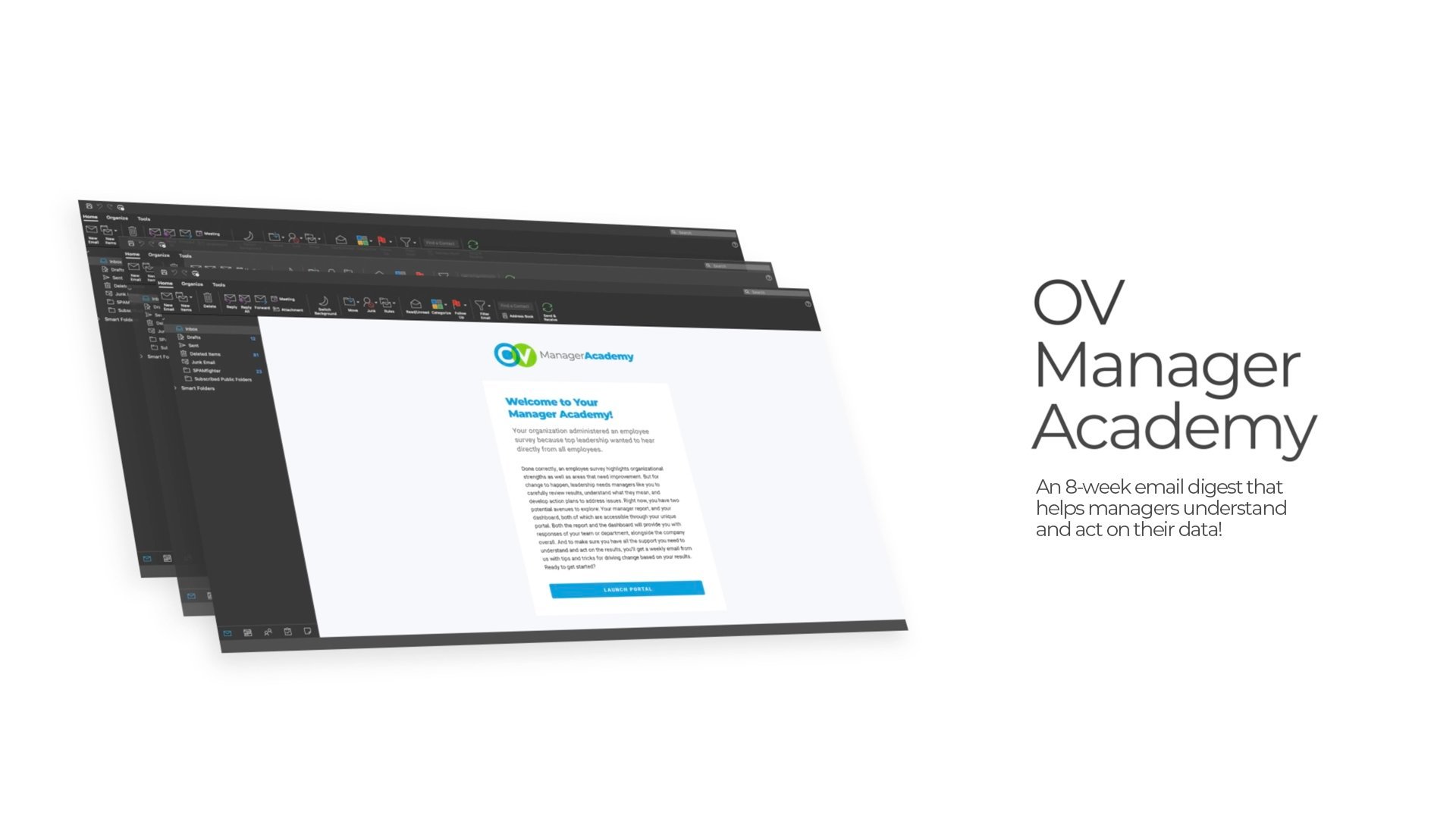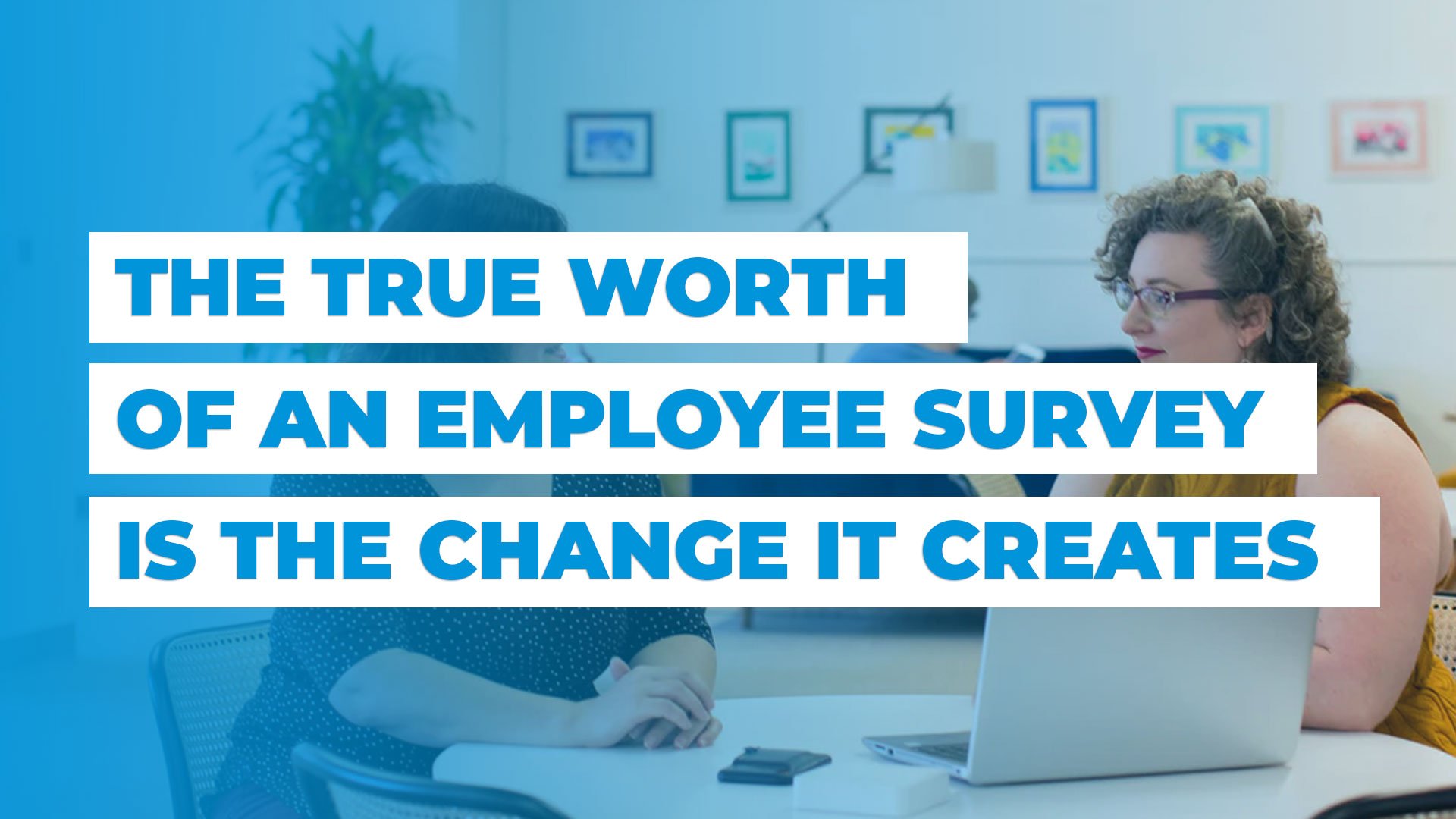
Most managers approach their survey results with the best of intentions of acting on the feedback. But too often, either day-to-day obligations get in the way or the data from your vendor may not be presented well. Survey vendors have a responsibility to provide the information clearly, quickly, and in an accessible way to take the burden off the manager, enabling them to do more with their data in less time.
1. Don’t Just Data Dump
We get it, we’re total data geeks over here, more data variables means a more robust analysis. But it’s too easy for people who are steeped in data to forget it’s not always obvious to people who don’t deal with survey data daily how to distill the data to key messages and takeaways. You want to provide a thoughtful analysis of the data in a way that is easy for a manager to understand. Often, this is done through both a downloadable report and a portal that lets managers explore their results online. Be clear with exactly what the manager is seeing. For example, we provide manager’s with a portal tour when they log in for the first time, helping to orient them to what they’re seeing and how to navigate the portal. It’s a quick 5-minute tour, but it lets managers know exactly what to expect once they log in – and most importantly, what to do when they get there.
[Read More: How To Take Action On Your Employee Survey Results]
2. Create Video Tutorials
Train-the-trainer sessions are less common now, perhaps because managers are less able to devote an hour to web training sessions. Managers need the information delivered to them in more digestible forms. We offer video training sessions that get carved up into shorter tutorials for the manager who might just be looking for insight on one particular aspect, such as reading a report, preparing for a team conversation about results, or taking writing action plans. These videos can be delivered to managers on a set schedule or housed in the resource section of their portal for viewing on demand. Remember to communicate that the tutorials exist to make their jobs easier (rather than add yet another to-do) and share that they are short and meant to help with a very specific aspect of their journey.
3. Subscribe to our Manager Academy
Acting on survey feedback should be an ongoing effort; we want the excitement of survey results to last, helping to ensure that positive change happens. That’s why we recently launched our 8-week Manager Academy, a weekly email digest that provides managers with short tips to help them navigate the two months after receiving their survey feedback. Digests provide useful information on the context of the employee survey, actionable insights, and links to helpful resources – all in a focused format that enables the manager to focus on what’s most relevant.
[Related Blog: How to Craft Effective Communication To Your Employees]
4. Assign a Survey Advocate
Tagging in an internal person who has a good understanding of the organization can be one of the key ways to boost your survey efforts. One client helped set up their managers for success by having their advocate meet with them and discuss what they expected to see before they even got their results, which helped create context and understanding while preventing them from trying to explain away low scores. It can be tricky to identify the right individuals who have the institutional and organization knowledge, but finding this person either by leveraging HR business partners or others, provides an ally to managers that will help them make the best use of this effort.
Ultimately, the worth of any survey is in the change it creates, and that change needs to start at every level of the organization. A top-down approach just won’t work. As talent wars heat up and organizational culture becomes increasingly important, meeting managers where they are – in terms of time and capacity – will greatly help improve your change efforts.
Author

Amanda focuses on business development, including creating branded content, managing special events, and working with clients to enhance their internal communications. Amanda comes to OrgVitality from the media industry, where she had 20 years of experience writing for national magazines, newspapers, online publications, and television news programs. She graduated from Columbia University with a B.A. in English and Comparative Literature






